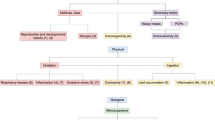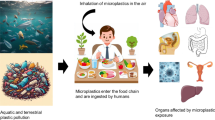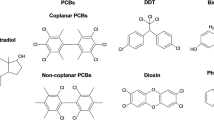Abstract
Epidemiological evidence has implicated Chinese salted fish as a human nasopharyngeal carcinogen. In the present study, 221 Wistar-Kyoto rats aged 21 days were randomly assigned to one of three experimental groups. Rats in group 1 (high dose group) were fed a powder diet of one part Chinese salted fish to three parts certified rat chow during the first 18 months. Similarly, rats in group 2 (low dose group) were fed a powder diet of one part salted fish to five parts rat chow for 18 months. Rats in group 3 were given rat chow only throughout the 3-year experiment. Four malignant tumours of the nasal cavity were observed among rats fed the experimental diets (three and one respectively in the high and low dose groups). No comparable tumours were observed in controls, compatible with the historical control rate of zero. Our results, therefore, further strengthen the hypothesis that Chinese salted fish is a human nasopharyngeal carcinogen; they also establish Wistar rats as a viable animal model for carcinogenicity studies of this food in the laboratory.
Similar content being viewed by others
Author information
Authors and Affiliations
Rights and permissions
About this article
Cite this article
Yu, M., Nichols, P., Zou, XN. et al. Induction of malignant nasal cavity tumours in Wistar rats fed Chinese salted fish. Br J Cancer 60, 198–201 (1989). https://doi.org/10.1038/bjc.1989.250
Issue Date:
DOI: https://doi.org/10.1038/bjc.1989.250
- Springer Nature Limited
This article is cited by
-
Matrix association region/scaffold attachment region (MAR/SAR) sequence: its vital role in mediating chromosome breakages in nasopharyngeal epithelial cells via oxidative stress-induced apoptosis
BMC Molecular Biology (2018)
-
RETRACTED ARTICLE: Proteomic analysis on N, N′-dinitrosopiperazine-mediated metastasis of nasopharyngeal carcinoma 6-10B cells
BMC Biochemistry (2012)
-
Salted meat consumption and the risk of laryngeal cancer
European Journal of Epidemiology (1995)




